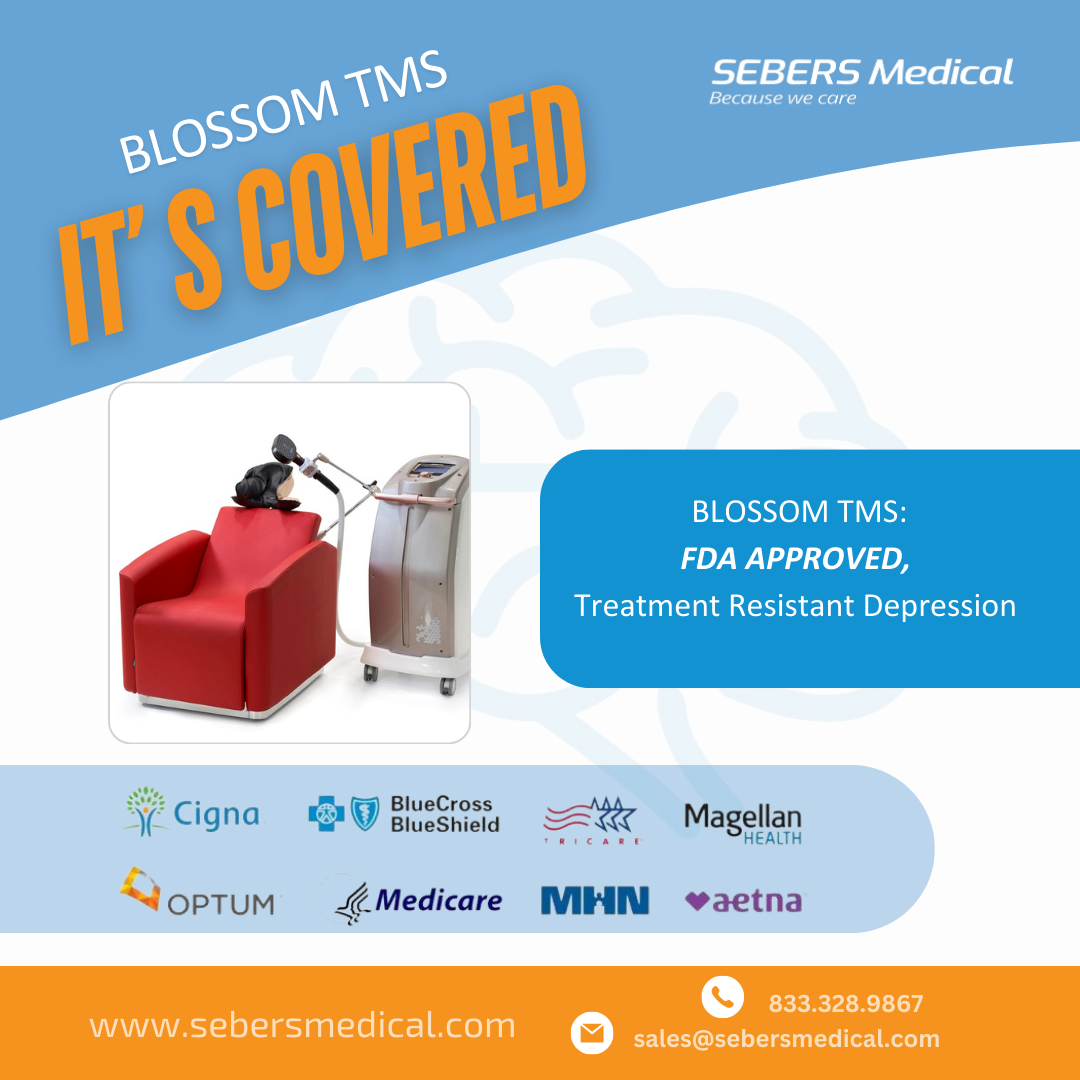Exploring the Journey of Insurance Coverage for Transcranial Magnetic Stimulation in the USA
Transcranial Magnetic Stimulation (TMS) has emerged as a revolutionary treatment for various mental health conditions, offering hope to those who have not responded to traditional therapies. While the effectiveness of TMS has been well-documented, its accessibility has significantly hinged on insurance coverage. In this blog post, we delve into the history and evolution of insurance coverage for TMS in the United States, highlighting the milestones that have made this treatment more accessible to patients nationwide.
Understanding TMS: A Brief Overview
Before exploring the insurance landscape, it’s essential to understand what TMS entails. TMS is a non-invasive procedure that uses magnetic fields to stimulate nerve cells in the brain, primarily used to treat depression and other mental health disorders. Approved by the FDA, TMS has proven effective for patients who have not found relief through medication or psychotherapy.
The Early Days: Limited Recognition and Coverage
2008: FDA Approval Marks a Turning Point
The journey of insurance coverage for TMS began in earnest in 2008, when the U.S. Food and Drug Administration (FDA) granted approval for its use in treating major depressive disorder (MDD) in adults who had not responded to antidepressant medications. This approval was a significant milestone, providing clinical validation for TMS and setting the stage for discussions around insurance coverage.
2009-2012: Initial Hesitancy and Gradual Acceptance
Following FDA approval, insurance companies exhibited caution in adopting coverage for TMS therapy. The high cost of treatment and limited long-term data contributed to initial hesitancy. However, as more studies demonstrated the efficacy and safety of TMS, some regional and smaller insurance providers began to offer coverage on a case-by-case basis.
Expansion and Standardization: Broadening Access
2012-2015: Major Insurers Come Onboard
Between 2012 and 2015, several major insurance companies recognized the benefits of TMS and started providing coverage for eligible patients. Notable milestones during this period include:
- 2012: Blue Cross Blue Shield (BCBS) in several states began offering coverage, setting a precedent for other insurers.
- 2013: Aetna updated its policy to include coverage for TMS in treating refractory depression.
- 2014: UnitedHealthcare and Cigna followed suit, expanding coverage across various states and making TMS accessible to a broader patient population.
These decisions were influenced by accumulating clinical evidence, positive patient outcomes, and advocacy from mental health professionals emphasizing the need for diverse treatment options.
2016: Medicare Coverage Elevates Accessibility
A significant breakthrough occurred in 2016 when Medicare started covering TMS therapy for depression. This development was pivotal for several reasons:
- Standardization: Medicare’s decision set a standard that many private insurers followed, leading to more uniform coverage policies across the country.
- Increased Access: Coverage under Medicare meant that older adults and those with disabilities could access TMS therapy, addressing a critical need within these populations.
- Validation: Medicare’s endorsement further validated TMS as a credible and effective treatment modality.
Recent Developments: Wider Acceptance and Diverse Applications
2017-2020: Coverage for Additional Conditions
As research expanded, demonstrating the efficacy of TMS for conditions beyond depression, insurance coverage began to reflect these findings:
- 2017: Some insurers started covering TMS for obsessive-compulsive disorder (OCD) following FDA clearance for this indication.
- 2018-2020: Growing evidence led to discussions around coverage for conditions such as post-traumatic stress disorder (PTSD), anxiety disorders, and chronic pain, with some insurers offering coverage under specific circumstances or through appeals.
2021-Present: Embracing Innovation and Accessibility
In recent years, the landscape has continued to evolve positively:
- Policy Simplifications: Insurers have streamlined approval processes, reducing administrative burdens and wait times for patients seeking TMS therapy.
- Expanded Provider Networks: There has been a significant increase in the number of approved TMS providers within insurance networks, enhancing accessibility for patients across various regions.
The Impact: Empowering Patients and Providers
The progressive expansion of insurance coverage for TMS has had profound impacts:
- Enhanced Treatment Options: Patients have greater access to alternative treatments, especially those who have struggled with traditional therapies.
- Reduced Financial Barriers: Comprehensive coverage has alleviated the financial burden associated with TMS, making it a viable option for a wider demographic.
- Advancement of Mental Health Care: The acceptance and coverage of innovative treatments like TMS signify a broader commitment to advancing mental health care and acknowledging the complexities of mental health disorders.
Looking Ahead: Continuing the Momentum
While significant strides have been made, ongoing efforts are essential to further enhance coverage and access:
- Advocacy and Education: Continued advocacy is necessary to educate both insurers and the public about the benefits and potential applications of TMS.
- Research and Evidence: Ongoing research will help expand the indications for TMS, supporting arguments for broader coverage.
- Policy Development: Collaborative efforts between healthcare providers, patients, and insurers can lead to more inclusive and patient-centered coverage policies.
The journey of insurance coverage for TMS in the United States reflects a dynamic interplay between clinical innovation, advocacy, and policy development. From initial skepticism to widespread acceptance, TMS has secured its place as a valuable tool in the mental health treatment arsenal, thanks in large part to evolving insurance policies that recognize its efficacy and importance.
At SEBERS Medical, we are committed to staying at the forefront of these developments, ensuring that our patients have access to the most effective and innovative treatments available. TMS is not just a covered service; it’s a covered promise for better mental health and improved quality of life.
For more information on TMS therapy and insurance coverage, feel free to contact us or visit our services page. Together, we can navigate the path to optimal mental health care.
